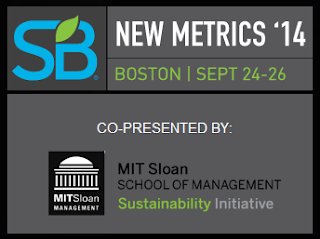Sustainability development metrics are aggregate measures that extend the concept of value beyond gross Domestic product (GDP). Commonly referred to as sustainability development indicators (SDI), these are measures of sustainability go beyond the generic concept.
Sustainability indicators, indices and reporting systems are of growing importance in both the public and private sectors. SDIs are seen as useful in a wide range of settings, by a wide range of actors this includes international and intergovernmental bodies; national governments and government departments; economic sectors; administrators of geographic or ecological regions; communities; nongovernmental organizations; and the private sector.
Here are some of the most prominent indices:
Human Development Index (HDI) of the United Nations Development Programme (UNDP);
The Ecological footprint of Global Footprint Network
The Environmental Sustainability Index (ESI)
Environmental Performance Index (EPI) reported under the World Economic Forum (WEF)
Genuine Progress Index (GPI) calculated at the national or sub-national level.
The Global Reporting Initiative Index
The Energy, Emergy and Sustainability Index (SI)
Environmental Sustainability Index
The Lempert-Nguyen indicator
Here is a listing of different approaches:
The Natural Step approach
The Ecological footprint approach
The Anthropological-cultural approach
The Circles of Sustainability approach
World Business Council for Sustainable Development approach
The Life-cycle assessment approach
Sustainable enterprise approach
Sustainable livelihoods approach
Development sustainability" approaches
Here are some other sustainability metric frameworks:
The International Institute for Sustainable Development sample policy framework
The Sustainability dashboard
UN Food and Agriculture Organisation (FAO) types of sustainability
The Food and Agriculture Organisation (FAO) has identified considerations for technical cooperation that affect three types of sustainability:
Institutional sustainability.
Economic and financial sustainability.
Ecological sustainability.
Some ecologists have emphasized a fourth type of sustainability:
Energetic sustainability.
One ancillary measure that is gaining growing support is the green GDP that would factor the cost of pollution and natural capital depletion.
Related
New Sustainability Metrics from KoAnn Skrzyniarz
e-book - Metrics for Environmental Health and Sustainability
KoAnn Skrzyniarz: A Leader in Sustainable Brand Innovation
White Paper - Redefining Value: The New Metrics of Sustainable Business
Evolving Metrics for Corporate Sustainability: Beyond Waste, Water and Energy
Is Sustainability Still Possible?
Ten Sources of Green Supply Chain Information
PPR Home's Sustainability Journey: Innovative Metrics Shed Light
Sustainability indicators, indices and reporting systems are of growing importance in both the public and private sectors. SDIs are seen as useful in a wide range of settings, by a wide range of actors this includes international and intergovernmental bodies; national governments and government departments; economic sectors; administrators of geographic or ecological regions; communities; nongovernmental organizations; and the private sector.
Here are some of the most prominent indices:
Human Development Index (HDI) of the United Nations Development Programme (UNDP);
The Ecological footprint of Global Footprint Network
The Environmental Sustainability Index (ESI)
Environmental Performance Index (EPI) reported under the World Economic Forum (WEF)
Genuine Progress Index (GPI) calculated at the national or sub-national level.
The Global Reporting Initiative Index
The Energy, Emergy and Sustainability Index (SI)
Environmental Sustainability Index
The Lempert-Nguyen indicator
Here is a listing of different approaches:
The Natural Step approach
The Ecological footprint approach
The Anthropological-cultural approach
The Circles of Sustainability approach
World Business Council for Sustainable Development approach
The Life-cycle assessment approach
Sustainable enterprise approach
Sustainable livelihoods approach
Development sustainability" approaches
Here are some other sustainability metric frameworks:
The International Institute for Sustainable Development sample policy framework
The Sustainability dashboard
UN Food and Agriculture Organisation (FAO) types of sustainability
The Food and Agriculture Organisation (FAO) has identified considerations for technical cooperation that affect three types of sustainability:
Institutional sustainability.
Economic and financial sustainability.
Ecological sustainability.
Some ecologists have emphasized a fourth type of sustainability:
Energetic sustainability.
One ancillary measure that is gaining growing support is the green GDP that would factor the cost of pollution and natural capital depletion.
Related
New Sustainability Metrics from KoAnn Skrzyniarz
e-book - Metrics for Environmental Health and Sustainability
KoAnn Skrzyniarz: A Leader in Sustainable Brand Innovation
White Paper - Redefining Value: The New Metrics of Sustainable Business
Evolving Metrics for Corporate Sustainability: Beyond Waste, Water and Energy
Is Sustainability Still Possible?
Ten Sources of Green Supply Chain Information
PPR Home's Sustainability Journey: Innovative Metrics Shed Light





